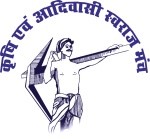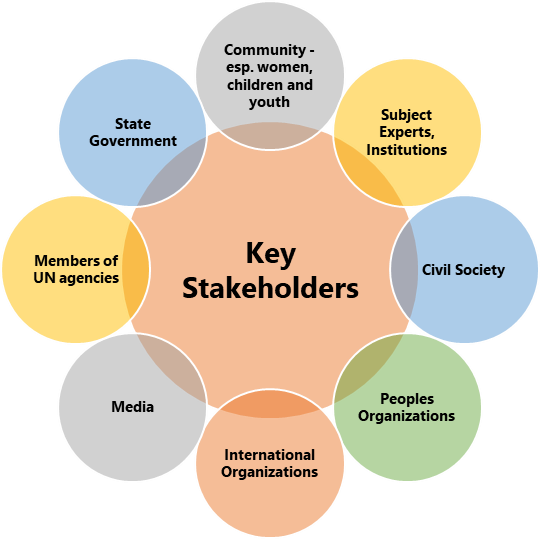


Introduction
The indigenous way of life embodies Mahatma Gandhi's ideology of Swaraj in its purest form. These indigenous communities not only have steadfastly adhered to the principles of Swaraj in their lifestyle and philosophy, but they have also successfully preserved their traditions, culture, and natural resources for generations. Remarkably, they have not just preserved these treasures but actively safeguarded and promoted them. While similar communities can be found across the globe, they now face the threat of endangerment due to the rising tide of consumerism and modernization. The relentless spread of urbanization and mechanization in the name of development is displacing the rural charm, causing the migration of youth from villages to cities to become a pressing challenge. It's important to recognize that tribal life thrives on principles such as labor, collectivism, sensitivity, simplicity, equality, spontaneity, and truthfulness. Consequently, their existence is characterized by an absence of animosity and competition, offering a wealth of cultural beauty and creativity.
The way in which indigenous communities utilize agriculture, animal husbandry, and traditional knowledge for their livelihood, it minimizes the exploitation of nature. In nature, the seed is the origin of creation; the soil serves as the nurturing mother, water embodies the life-sustaining force, and land provides sustenance and shelter. Animals are seen as integral to creating biodiversity and balance in nature. For the existence of all living beings, it is imperative to have these five components - water, forests, land, livestock, and seeds, and only by protecting, conserving, and nurturing them, Swaraj can be achieved for all these components.
If the principles of Swaraj are integrated into human life, it has the potential to address various challenges such as ecological imbalance, unemployment, hunger, superstitions, and inequalities (economic, gender, caste, race, religion, color, language, region, etc.), which give rise to tensions, conflicts, differences, and unrest. In this context, it is essential that local-level individual and community initiatives are taken towards Swaraj, creating a foundation between the indigenous and non-indigenous communities in central India. This foundation should be built in such a way that it can embrace Gandhi's Swaraj through various components, and instill its values, while also empowering future generations.
Agriculture and Tribal Swaraj Conclave
Every year, the Agricultural and Tribal Swaraj Conclave is organized in Banswara by the indiegnous communities of Southern Rajasthan and the adjoining tribal districts of Madhya Pradesh and Gujarat. In this conclave, experts, thinkers, and primarily thousands of small and marginal farmers from the tribal regions across the country participate. They engage in in-depth discussions on various subjects, particularly focusing on issues related to water, forests, land, livestock, seeds, food, and nutrition sovereignty, as well as child rights, among others. They also convey the community's major concerns and demands to policymakers and other stakeholders.
Last year, this conclave was organized in a new format of ‘Swaraj Sandesh Samwad Padyatra’. This foot march led by indigenous community commenced on September 11, 2022, on the occasion of Acharya Shri Vinoba Bhave's birth anniversary from Banswara and culminated at Jaipur on October 2, 2022, on Mahatma Gandhi's birth anniversary. On October 1, 2022, the Agriculture and Tribal Swaraj Conclave was organized at the 'Rajasthan Samagra Seva Sangh,' the memorial site of freedom fighter and social leader Shri Gokulbhai Bhatt in Durgapura, Jaipur. In the final phase of the journey, on October 2, 2022, a Swaraj Agrah Patra prepared and presented by the tribal community to the Honorable Chief Minister Shri Ashok Gehlot, and on October 3, 2022, it was presented to the Honorable Governor. Both the Honorable Chief Minister and the Honorable Governor appreciated the efforts of the ‘Swaraj Sandesh Samwad Padyatra’ and assured appropriate action on the appeals made by the tribal community.
Agriculture and Tribal Swaraj Conclave - 2023
This year, it is proposed to organize this conclave once again in a new format. Under this, selected members from various people’s organizations in Southern Rajasthan, Madhya Pradesh, and Gujarat, will play a role of ‘Janmanch’ and will discuss the customs, processes, and issues of their regions in depth with approximately eight thousand (8,000) tribal community members. They will also prepare a charter or Agrah Patra with possible solutions at the local level for their issues, and will present to policy makers and other key stakeholders.
Objectives
- Drawing from the principles of Swaraj in tribal areas, the outcomes of discussions on effective practices within the realms of food and seed sovereignty, water and natural resources, soil and livestock management, child health and nutrition, education and child development, cultural preservation, and ideological empowerment, along with potential local-level solutions for the identified challenges, will be consolidated and disseminated to stakeholders at both the state and national levels.
- Fostering a sense of ownership among community members through the "Janmanch" model in the process of identifying potential issues and disseminating them to various stakeholders.
- Establishing collaborations with stakeholders from different states for organizing similar conclaves in various other tribal regions across the country and outlining the framework for agricultural and tribal swaraj conclave at the national level with their support.
The strategic framework of the program will primarily focus on the principles of
“PROTECT – ACCESS – PROMOTE”
Program Schedule
JANMANCH
Janmanch is a platform that provides the general public with the opportunity to collectively learn, discuss, and find solutions to the challenges faced by the Indian society.- Comprised of community members, this platform makes decisions on policies that they deem appropriate and necessary.
- Janmanch members gain an understanding of various issues through the guidance of different experts. They present their perspectives and engage in discussions with fellow members regarding their suggestions.
- After listening to various options and viewpoints, Janmanch members arrive at a well-considered decision.
Dialogue Process with the Community
Showcasing examples of success through community efforts on the aforementioned various issues, and suggestions for learning from their endeavors, will be shared with the community.
A few indicative guiding points for discussions on the topics: (Looking for perspectives based on Retention, Rejuvenation, and Resilience)
- Situation of diversity within the Food and Farming System in the tribal region.
- Climate Change Manifestation and their impact on food and farming systems in the area.
- Potential interventions for adaptation and mitigation within climate change for positive impact on the food system e.g., community-managed seed system, value chain approach, family farming approach, food forest, SIFS, NSFS, Hangdi Farming, etc.
- Situation of diversity within the Food and Farming System in the tribal region.
- Present status of Energy, Water, and Soil use efficiency quantity, and quality.
- Climate Change Manifestation in the area and their impact on resource use efficiency.
- Enhanced actions such as water and energy budgeting-based actions for sustainable ecosystem.
- Situation of youths in employmnet, and leadership in the indigenous community
- Climate Change Manifestation and their impact on tribal life and livelihoods.
- Reasons behind alienation of youth from tradtional life and system.
- Scope for building youth leadership around climate change actions and rejuvenating tribal sovereignty.
- Climate Change Manifestation in the area and their impact on livelihood sustainbaility of indigenous community (Climate Hazard Mapping)
- Potential interventions for Climate Change Mitigation and building resilience against Climate Change Induced Disaster Risk (CCIDR).
- Examples of Traditional lifestyle and their compatability to CCIDR - agroforestry, natural farming, food forest, LULC (Land use based on Land capability), NBS (Nature Basd Solutions) etc.
Venue
The venue for the Agriculture and Tribal Sovereignty Conclave - 2023 is proposed to be organized opposite Tripura Sundari Temple premises in Banswara district. The event is scheduled from September 20th to September 22nd, 2023.
Key Stakeholders of Agriculture and Tribal Swaraj Conclave

Expected Outcomes
- Community ownership in identification of issues and possible solutions and reaching to various stakeholders.
- Increased involvement of members dedicated to Krishi evam Adivasi Swaraj Sangathans and Manch.
- Enhanced engagement of youth with local issues at a larger scale.
- Deeper understanding on the policy issues at the state and national levels, leading to development of an effective action plan.
- Development of a framework for organizing similar conclaves in other states.
- Invited members from civil societies of other states will be able to observe procedures of the conclave, making it easier for them to conduct such events in their regions.

